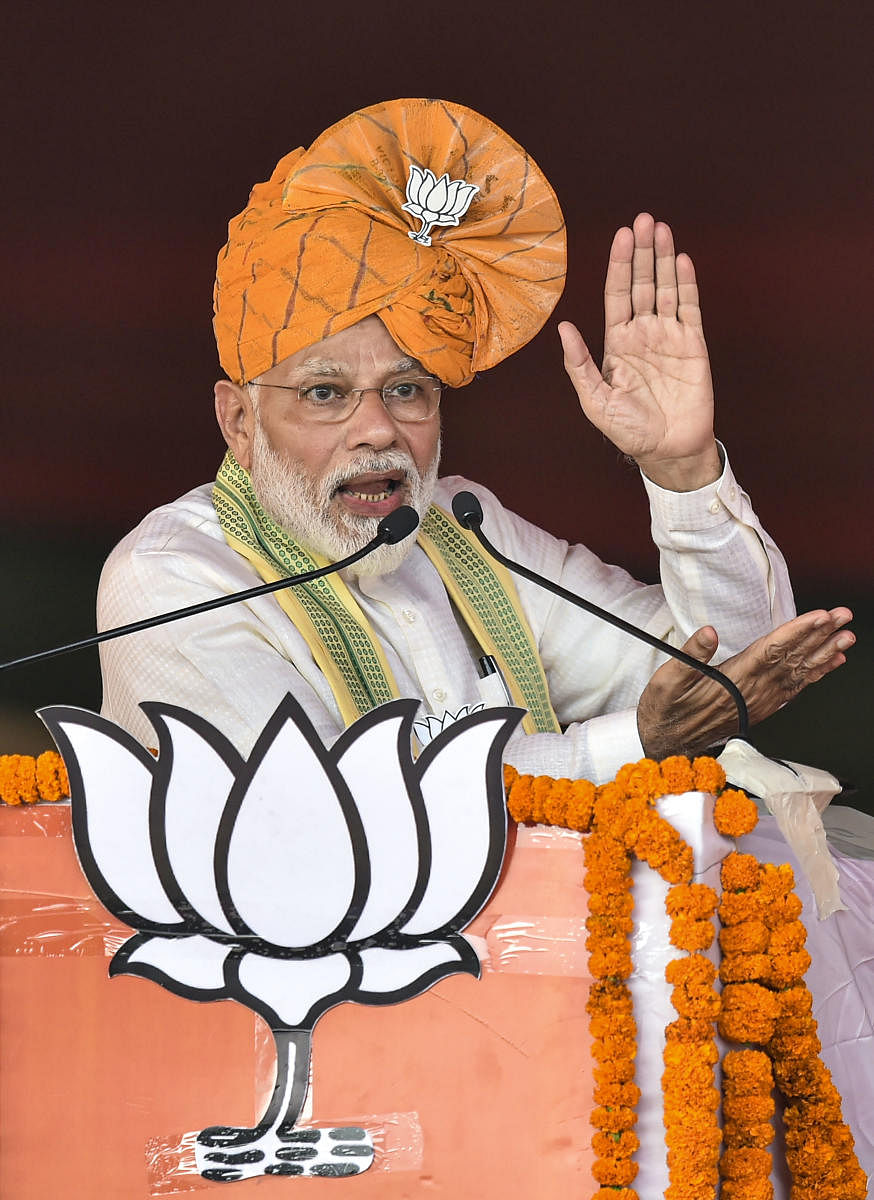
Taking the tide at the flood, as William Shakespeare would have counselled, this is the time for Prime Minister Narendra Modi to take some tough decisions that are required in the national interest, but which can only be attempted by a leader with the kind of majority he commands in the Lok Sabha.
Two issues, in particular, have been crying for action for some time, but the fear of backlash by vested interests has prevented a series of confidence-deprived governments from even talking about them. One is tax on agricultural income; the other is winding down caste-based reservations.
Since the 1950s, economists have been advising the government that it should levy a tax on farm income. Leaving the largest sector of our economy out of the tax net is not only inequitable, it hampers the capacity of the State to raise resources for development and also provides a loophole for the urban rich to dodge the tax net. One of the reasons why demonetisation failed was that the rural sector provided holders of ill-gotten cash the facility of converting black into white with farm income as their alibi.
Every time this issue is raised, we hear a chorus about the agricultural sector being in distress and therefore unable to bear any tax burden. Large sections of the rural economy certainly are under severe financial strain, but by its very nature a progressive tax system exempts from its purview those who are unable to bear the burden. Only farmers with large incomes will pay income tax, as do the urban rich.
The fact of the matter is that the wealthy and powerful in the villages have all along been threatening to unleash voter anger, and more, if any attempt is made to introduce a tax on agricultural income. But the ability of the dominant classes in rural areas to control votes is no longer what it was earlier. And if revenue collection from taxes on rich farmers can be tied to specific farmers’ welfare schemes, the government, with the kind of authority it currently wields, has the capability to push this reform through.
Since agriculture is a state subject, such a measure will have to be initiated at that level. The ruling political party has enough clout to goad its state units into action. Suitable incentives can also be given to states that take this courageous step.
Caste-based reservations is another area where vision and courage are required to do the right thing by the nation. These ‘reforms’ were initiated to give the underprivileged sections of our society a leg up so that they could, over time, overcome handicaps that centuries of discrimination had saddled them with. While it may still be too early to scrap the benefits given to the scheduled castes and tribes – because the attitude that generates social injustice is too deep-rooted in our social psyche – the reservations for the Other Backward Classes do need a relook.
The privileges given to these castes were based on obsolete data crunched in a flawed report. Unfortunately, it has led to heartburn everywhere as even the well-to-do castes such as the Jats, the Marathas and the Patidars want a slice of the quota pie now. They know that they are by no means ‘backward’, but they do not want to be deprived of the benefits that their peers get. And this has led to social tension and law and order problems which will not go away by merely expanding the coverage of the reservations.
Some time ago, RSS chief Mohan Bhagwat suggested that this entire issue needs a rethink, but the storm of protest that followed made him beat a hasty retreat. Fortunately, the government is stronger today than it was then, and it can, at least, begin a dialogue on the subject.
Three prime ministers before Modi enjoyed a majority in Parliament which empowered them to make radical changes in the national interest: Jawaharlal Nehru, Indira Gandhi and Rajiv Gandhi. Indira Gandhi did nationalise the banks and abolish privy purses, but these were political tactics, not inspired by any genuine reformist zeal. Rajiv just wasted his mandate.
Only Nehru, despite being vilified today, showed the vision and courage to undertake some revolutionary reforms. He abolished zamindari, which radically altered the social equation in the rural areas in favour of the tillers. And he introduced a slew of laws under the ‘Hindu Code Bill’ that sought to weed out several oppressive and unjust Hindu social practices. And he did so in the teeth of opposition by strong vested interests.
Now, Modi has been given a similar opportunity. Some issues, even difficult ones, arise as a matter of routine and each government tackles them as best as it can. It has no option but to do so. But the two subjects listed above can be skipped if the government cannot muster courage to take them on, and be none the worse for it. Sometimes, safety lies in dodging the problem. However, a true leader is one who goes out of his way to take tough calls. Can Modi do it?